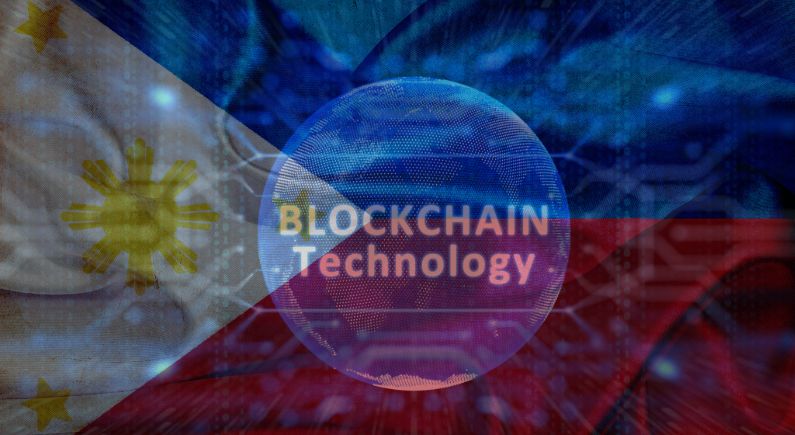- Roadshow to Rome
- Awards
- Exhibitors
- Speakers
- Media Partners
- News

The Philippines isn’t just catching up in the blockchain space—it’s sprinting ahead. Fuelled by a young, digitally native population and a hunger for innovation, the country has become a beacon of cryptocurrency adoption in Southeast Asia. While most people still think of blockchain as just Bitcoin or Ethereum, the reality here is far more diverse.
Philippine Blockchain Report 2025 was unveiled during the Philippine Blockchain Week 2025 on 10 June 2025 by Gorriceta Africa Cauton & Saavedra, Gobi-Core Philippine Fund, the Blockchain Council of the Philippines, and Tether. This report serves as a vital snapshot and roadmap, highlighting the country’s enthusiastic adoption of digital transformation.
With a median age of 26.1, the Philippines boasts a digitally fluent, mobile-first generation. This group is driving the country’s appetite for decentralised technologies, cryptocurrencies, and Web3 platforms. Unlike other countries that resist change, the Philippine government has largely welcomed blockchain.

Philippine Blockchain Report 2025 launch ceremony.
FinTech and cryptocurrency: The country ranks as the 8th highest in the 2024 Global Crypto Adoption Index, signifying a widespread embrace of digital assets. Cryptocurrency is the most recognised blockchain application among Filipinos, primarily used for trading, payments, gaming, and social media.
Gaming and NFTs: The “Play-to-Earn” (P2E) model gained immense popularity, particularly during the pandemic, with many Filipinos referring to themselves as “Metaverse Filipino Workers” (MFWs). Games like Axie Infinity provided an alternative source of income, with some players earning more than the minimum wage. Yield Guild Games (YGG), a local gaming guild, has been instrumental in this space, even raising $4.6 million in 2021 from A16z.
Beyond FinTech and gaming, blockchain is being increasingly adopted for various business applications, including identity, logistics, and enterprise solutions. Examples include FilPass for secure digital identity, BayaniChain for Blockchain-as-a-Service, and FleetHive for B2B delivery and load-sharing using blockchain.
The Bangko Sentral ng Pilipinas (BSP) guidelines for Virtual Asset Service Providers (VASPs) represent a step towards safer cryptocurrency usage. They’ve frozen new VASP applications temporarily to focus on stability and quality, not just growth. Plus, they’re experimenting with Central Bank Digital Currencies (CBDCs) through Project Agila.
The Philippines Securities and Exchange Commission (SEC) is stepping up. From advising on initial coin offerings (ICOs) to proposing rules for Digital Asset Exchanges, the commission is establishing a solid legal foundation. The Rules on Crypto-Asset Service Providers (CASPs) are a major leap forward in creating clarity and consistency.
Project Marissa (budget transparency), eGovChain (public service efficiency), and tokenised treasury bonds are just the beginning. The Cagayan Economic Zone Authority (CEZA) and the Freeport Area of Bataan (AFAB) have introduced licences for offshore blockchain businesses, aiming to position their zones as blockchain hubs.
A survey revealed that Filipinos’ involvement and awareness of blockchain technology vary significantly. While a vast majority (85 percent) have no direct connection to blockchain in their daily lives, and 70 percent are unfamiliar with the technology, a significant portion (13 percent) regularly use blockchain-based applications.
Awareness gap: According to a 2023 survey, even though the Philippines has a high percentage of cryptocurrency owners, just 46 percent of Filipinos fully comprehend cryptocurrencies, and only 28 percent are familiar with Web3. Wider acceptance is significantly hampered by this knowledge gap.
Perception of security: Among those aware, 74 percent expressed confidence in the security of blockchain. The rise of centralised exchanges like Coins.ph and PDAX has contributed to this by simplifying the user experience and providing a more structured environment.
Essential factors: Filipinos give security (74 percent), transparency (72 percent), and cost-effectiveness (66 percent) top priority when it comes to blockchain technology. This suggests that applications with solid compliance and reliable support are preferred.
Future intent: Over half (55 percent) of respondents are open to using blockchain in the future, but their intent is often conditional on further security measures being implemented.